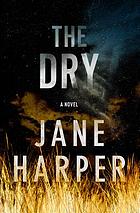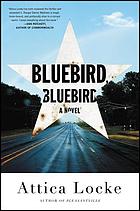Libraries and Learning
Getting Sand in My Beach Reads
July 19, 2017
Summer is traditionally when people feel permission has been granted to read for fun. I do it year round, with or without permission, and rarely at a beach. My escape pod of choice is crime fiction, but lately I find my tastes within the genre are getting complicated.
I picked up the mystery bug from my mom, an autodidact avid reader who favored Jane Austen, Angela Thirkell, and British Golden Age mysteries. She wasn’t an Agatha Christie fan, but she loved Dorothy Sayers and Margery Allingham, so I did, too. The detectives’ families were in Debrett’s and characters were more likely to drink a tawny port than a pint. Police were generally sidekicks at best, and often less instrumental in solving a case than the gentlemen’s gentlemen, dispatched to conduct undercover work belowstairs. My working class mom knew the hierarchy of British titles as well as she knew the alphabet.
It was much later (after an undergraduate Russian literature binge) that I began to read the inheritors of the American hardboiled tradition, and my tastes began to align more with the claims Chandler made in “The Simple Art of Murder.” He thought the British amateur sleuth was a phony compared to the tarnished knight-errant private investigator, the honorable if bare-knuckled hero of the mean streets.
After women crashed the party (Marcia Muller, Sue Grafton, and Sara Paretsky in particular) and gave it a feminist twist for a few years, popularity shifted to stories about police, forensic scientists, and profilers (what Patrick Anderson terms the “Triumph of the Thriller”). I never cared for the serial killer trend – too much like slasher films, too much of a morality play in which heroes slay monsters – but there’s enough variety to choose from that I’ve always found good things to read whatever is flooding the bestseller list. Since I got credentialed as a reviewer a few years ago (not a difficult task these days as social media fills the gaps in newspaper reviews), books tend to find me.
Readers expect things from a mystery. It has to surprise, but can’t violate the rules of the genre – the solution can’t be pulled out of a hat, the reader has to have all the clues available if cleverly concealed, and there has to be some reassurance that justice can prevail (except in the case of classic noir, where things start out bad and get progressively worse). It has to be realistic enough to sustain disbelief. And it has to entertain at a pace.
Some readers insist that they don’t want real life issues in their entertainment fiction, but taking some sort of social position is inescapable whether your chosen heroes are a fusion of Bertie Wooster and Sherlock Holmes solving crimes among the upper classes or FBI profilers peering into the darkness of the not-entirely-human mind. Or for that matter (the latest trend to wear out its welcome) the psychological dissection of characters locked together in an unhappy domestic life. There are reasons these story lines appeal to us at different times in our cultural history, and at the moment I’m finding myself picking through my reading options carefully, looking for ones that offer that say something truthful about this world, not using violence to entertain or portraying police work or forensic science in terms that ignore their real-world limits and flaws. The day after the Orlando mass shooting I suddenly couldn’t bear the usual iconography of crime fiction book jackets: blood spatter and guns. And that hesitation lingers.
But variety to the rescue again. There’s a lot of crime fiction that no longer appeals, but many writers do fictional work that works for me. In honor of summer I thought I’d share some books that have hit the spot recently and don’t make me question why I’m still reading this genre. As they say online, YMMV.
Laurie King’s Lockdown – Recounts a few hours in the life of a school during an era when children are drilled on responding to mass shootings just as an earlier generation prepared for nuclear Armageddon. From the first page, we sense something terrible is going to happen soon, but we aren’t sure what direction the danger might come from. She introduces a lot of characters to keep track of as we see the day through multiple points of view, but it’s skillfully done and suspenseful.
Jane Harper’s The Dry – Probably not one to read if you live in a part of the country threatened by wildfire at the moment. A man who had to leave a small town in Australia’s outback as an adolescent because  of rumors swirling around a friend’s drowning, returns for the funeral of another of his friends. He apparently committed suicide after killing his wife and children, leaving only their baby alive. After years of drought, nobody’s surprised that a farmer might snap. Nicely weaves together two story lines with a setting that’s guaranteed to make you feel the heat. It’s not perfect – the villains aren’t as believable as the good guys – but it’s a debut that I enjoyed especially for the sense of place.
of rumors swirling around a friend’s drowning, returns for the funeral of another of his friends. He apparently committed suicide after killing his wife and children, leaving only their baby alive. After years of drought, nobody’s surprised that a farmer might snap. Nicely weaves together two story lines with a setting that’s guaranteed to make you feel the heat. It’s not perfect – the villains aren’t as believable as the good guys – but it’s a debut that I enjoyed especially for the sense of place.
Speaking of which, here’s something to look forward to – Attica Locke’s Bluebird, Bluebird. I’ve just finished a review copy (it comes out in September) and it was the perfect answer to my post-Orlando why-am-I-reading-this-stuff dilemma.  Set in a small town in East Texas it’s about a black Texas Ranger who was born and bred near there, escaped to a better life, but quit law school and signed up after the dragging death of a black man in Jasper, his “9/11 moment.” But it’s not just a quest for justice that brought him home; it’s also the magnetic pull of the place where he was born. The author conveys that deep connection black folks can have to a place that’s drenched in bigotry very effectively. And the mystery is good, too.
Set in a small town in East Texas it’s about a black Texas Ranger who was born and bred near there, escaped to a better life, but quit law school and signed up after the dragging death of a black man in Jasper, his “9/11 moment.” But it’s not just a quest for justice that brought him home; it’s also the magnetic pull of the place where he was born. The author conveys that deep connection black folks can have to a place that’s drenched in bigotry very effectively. And the mystery is good, too.

